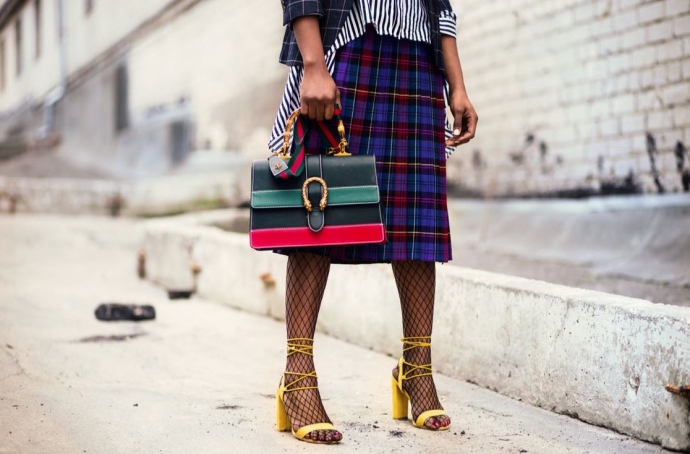Have you ever passed by a stranger at the mall or on the streets, and there was something about them that instantly put a smile on your face? Or have you ever seen someone across a crowded room and felt a little bit creeped out just by looking at them? You didn’t know that person or know anything about them. But something about their appearance triggered an emotion inside of you?
Well, it happens fairly often because the way that people dress can often tell you some things about their personality, values and other characteristics. Here are a few things that your own clothing might be saying about you to others. Sometimes these factors play off of stereotypes and are not necessarily accurate all the time, but the message is sent—whether it is accurate or not.

Your Personality
People who tend to wear brightly-colored outfits and bold patterns are often seen as outgoing, fun and even flirty. On the opposite side of the spectrum are those who wear more subdued colors such as neutral beige and gray clothing. People often assume that they are quiet, shy, boring and reserved.
Those who wear simple clothing like loose T-shirts, free fly clothing, hoodies and sweatpants might be seen as relaxed and laid back. While those wearing collared shirts and pocket protectors are nerdy and stiff.
Your Values
People who wear work clothes, blue jeans and industrial OSHA shirts are seen as simple, honest and hardworking. Those who wear suits and ties are assumed to be responsible business people with successful careers.
Your Maturity Level
Many people are quick to judge—both in positive and negative ways—when they see you wearing clothing that they feel does not match your age. A young man who passes on shorts and Pokémon shirts and instead wears a tucked in white collar shirt and khakis will be seen as mature and ambitious. But a lady in her fifties wearing a Metallica shirt will be seen as having some serious issues, refusing to act her age and trying to get attention.
The point of all this is not to say that we need to be self-conscious about how we dress. But it can be useful in certain work situations or social situations to think about how your clothing affects people’s perception of you. It’s also helpful to be more aware of how you perceive others based on their clothing.
Overall, if you like an outfit, then wear it. If those shoes make you feel happy and confident, then put them on. It doesn’t matter what anybody else thinks of it. Fashion is an act of self-expression. Sometimes putting on your favorite top can take an otherwise dreary day and make it more bearable. When it’s all said and done, nothing else matters except the way that your clothes make you feel.

